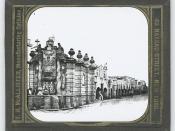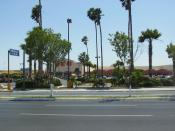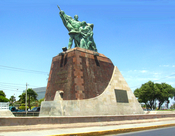The purpose of this report is to help employees understand why multinational corporations are seeking sources of comparative advantage by investing in developing countries. Specifically, tobacco subsidies for foreign farmers; how subsidies affect the equilibriums for tobacco and domestic food items; why Acme Motors produce engines in Mexico and then shift assembly to the U.S.; and the gains and losses for consumers in these types of international production and trading pattern.
The U.S. would subsidize the short run costs of production for tobacco farmers in foreign countries because it provides an incentive to the farmers to grow tobacco instead of domestic food items. These practices guarantee the tobacco farmers a profit in the short run. However, this may not be the case in the long run since the U.S. can withdraw the subsidies.
This practice will shift the equilibriums for tobacco and domestic food items. The local effects are that the output for tobacco will increase and the price will decrease.
Also, the domestic food will decrease and the price will increase. Some international effects are that other countries governments will likely have to provide subsidies to their tobacco farmers to allow them to be able to compete in the global market.
Acme Motors has many production gains from the facility in Nuevo Laredo, Tamaulipas specializing in Autoturbo Quatro Engines. Some of the production gains are that labor and material costs in Mexico are lower. Due to labor costs in Mexico being cheaper a larger labor force can be employed for the same price or less than a smaller labor force in the U.S.
Acme Motors shifted its production of engines from Detroit to Mexico because of lower wages, lower material costs, state incentives, municipal incentives, and less strict government regulations. For example, here are the incentives for Nuevo Laredo:"STATE...


